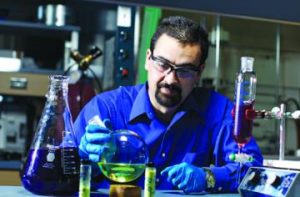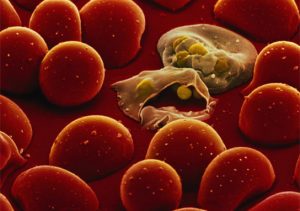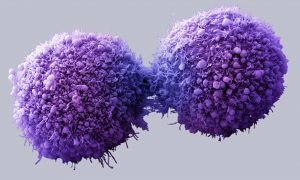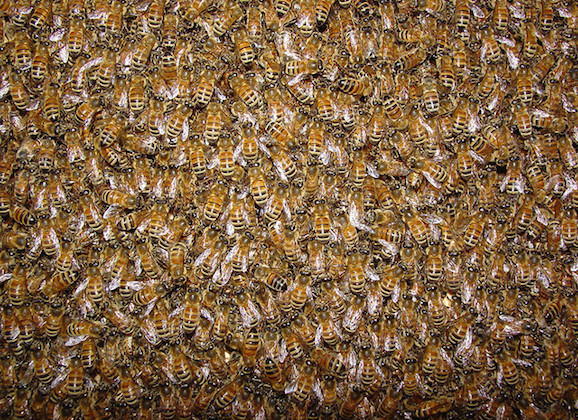An Interview with Dr. Fraser Hof, a UVic Chemistry Professor
Lately, I’ve been at a complete loss for what to write for my next blog post. So, I’ve decided to do something different! I thought that a cool post would be an interview with a science professor: it would be a great way for incoming science students to get a feel for what UVic Science is like.
I’ve decided to interview Dr. Fraser Hof, who was my supervisor for three years, and a role model and mentor while I was an undergraduate student. Working in Fraser’s lab played a huge part in making me passionate about cancer, human disease, and medicinal chemistry.
1. How did you first become interested in chemistry?
My older sister studied chemistry before I ever got to University. So I took the unimaginative route by following her.
2. Where did you go for your undergraduate degree?
University of Alberta.
3. Where did you go for graduate school? What did your research there focus on?
The Scripps Research Institute (in La Jolla, California). I studied how to design and synthesize molecules that could self-assemble spontaneously. When they were mixed under the right conditions, many copies of the same molecule found each other to form a capsule-like structure, which in turn could bind a ‘guest’ molecule inside of its hollow core. It was all very elegant and aesthetically pleasing, but not at all good for anything.
4. Where did you go for your post-doctoral research? What did your research there focus on?
The Swiss Federal Institute of Technology (called “ETH Zurich”). I worked in a lab that focused on neglected third-world diseases. I designed and made new drug molecules to treat drug-resistant malaria.
It sounds different than my PhD but the common themes were knowing about molecular shapes, how they influence binding, making new molecules, and measuring how strongly they bind to each other.
5. What does your research currently focus on? How did you get to this avenue of research?
We work on a family of biological systems called “methylation” that are important in cancer, autoimmune disease, and in controlling stem cell behavior. These are evolved pathways in which a single carbon atom is added to or removed from different proteins in the cell.
I started in this area because I was curious about how such a small change could make such a huge difference in serious diseases. As chemists, we are the tool makers in a big community of scientists who study these pathways.
The molecules we design and make are intended either to disrupt these pathways (for drug development), or to enable new kinds of measurements that are otherwise impossible (to drive new research).
6. Did you always see yourself becoming a professor?
My parents were both teachers, and I always thought being a professor would be great. But I also imagined working in the pharmaceutical industry would be rewarding too.
7. Why did you choose to come to UVic?
The main attraction was the quality of scientists and colleagues already here in the Chemistry Department.
8. What is your favorite thing about being a professor at UVic?
UVic attracts really, really great undergraduate and graduate students. It’s awesome that I get to interact with the best and brightest every day.
9. What have been some of the most rewarding moments during your time at UVic?
Moments during office hours when a student shows a flash of unexpected insight. Also, those moments when a graduate student gets independent, challenges what I know, and pushes off in a new direction.
10. What is a single piece of advice you could give to an incoming undergraduate student?
Learn to think critically. A university degree isn’t job training, and it isn’t about cramming lots of facts into your brain. Yes, you need to learn and remember stuff, and yes, you hope you get a job when you’re done. But the most important part of a University education is that you learn how to think critically and holistically using the collection of knowledge that you gain along the way. Whatever degree you get, you should think of it as qualifying you as someone who can think and analyze new information at a certain level, even when that information has nothing to do with your degree.
To help develop critical thinking, you should:
- Be rounded. Take lots of different electives outside of your specialty. (I took things like Classics, Sociology, German, Botany, and my favourite… “Improvisational Drama for non-Drama Majors.”) Get as much life, research, and work experience outside of a classroom as you can.
- Learn to write organized, compelling documents. I only started to learn writing when I was late in my PhD. I’ve been trying to catch up ever since.
- Seek criticism. Someone who tells you blandly that you’ve done a “good job” is way less useful to you than someone who will take the time to rip apart your work and help you see its shortcomings.
11. What has been the funniest moment that you can remember as a UVic professor?
Being mocked by my whole 3rd-year chemistry class because my (random) screen saver popped up as a Lady Gaga album cover. I had no choice but to sing a few lines…






